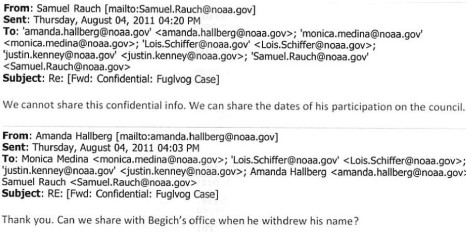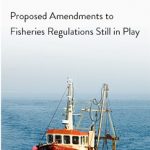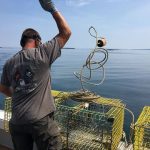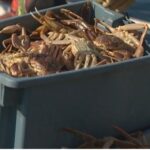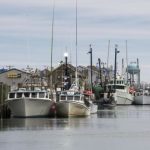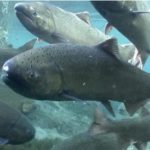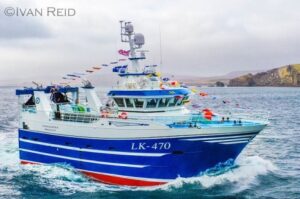Daily Archives: December 28, 2015
US tuna boats could lose licenses on January 1st
 The chief executive of the Parties to the Nauru Agreement says the US tuna fleet has till the end of the month to pay up or lose its fishing license. Transform Aqorau says under the vessel day scheme agreement the fleet has to pay US$17 million dollars per quarter for fishing days but it may come up short for its payments for the first quarter of 2016. Mr Aqorau says the shortfall is an internal issue stemming from the Pago Pago based fleet of fishing vessels which have taken on more days than they can afford. Read the article here 18:48
The chief executive of the Parties to the Nauru Agreement says the US tuna fleet has till the end of the month to pay up or lose its fishing license. Transform Aqorau says under the vessel day scheme agreement the fleet has to pay US$17 million dollars per quarter for fishing days but it may come up short for its payments for the first quarter of 2016. Mr Aqorau says the shortfall is an internal issue stemming from the Pago Pago based fleet of fishing vessels which have taken on more days than they can afford. Read the article here 18:48
Icicle vessel runs aground
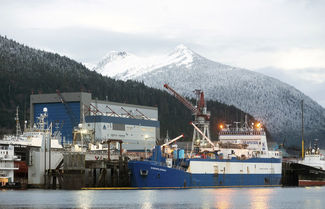 Icicle Seafoods’ The/Gordon Jensen struck rocks on Saturday and the U.S. Coast Guard had to escort the damaged vessel to Ketchikan for repairs. Coast Guard public relations Petty Officer Meredith Manning said Tuesday the cause of the incident is still under investigation and no injuries were reported. Manning said the vessel ran aground near Bella Bella, 172 miles southeast of Prince Rupert. Read the article here 14:09
Icicle Seafoods’ The/Gordon Jensen struck rocks on Saturday and the U.S. Coast Guard had to escort the damaged vessel to Ketchikan for repairs. Coast Guard public relations Petty Officer Meredith Manning said Tuesday the cause of the incident is still under investigation and no injuries were reported. Manning said the vessel ran aground near Bella Bella, 172 miles southeast of Prince Rupert. Read the article here 14:09
NMFS Announces 2016-2018 Regs for Summer Flounder, Scup and Black Sea Bass

New regs for Tuesday: Imports, small banks and commercial fishing
 The National Oceanic and Atmospheric Administration (NOAA) is finalizing a rule to establish a single standard for what’s considered a small commercial fishing business. Any commercial fishing business with 11 million in annual gross receipts will be considered a small business. The $11 million standard will be used in analyses required by the Regulatory Flexibility Act in place of the U.S. Small Business Administration’s (SBA) current standards of $20.5 million, $5.5 million, and $7.5 million for the finfish, shellfish and other marine fishing sectors of the U.S. commercial fishing industry, respectively. Read the article here Read the pdf here 12:16
The National Oceanic and Atmospheric Administration (NOAA) is finalizing a rule to establish a single standard for what’s considered a small commercial fishing business. Any commercial fishing business with 11 million in annual gross receipts will be considered a small business. The $11 million standard will be used in analyses required by the Regulatory Flexibility Act in place of the U.S. Small Business Administration’s (SBA) current standards of $20.5 million, $5.5 million, and $7.5 million for the finfish, shellfish and other marine fishing sectors of the U.S. commercial fishing industry, respectively. Read the article here Read the pdf here 12:16
Fishermen on the Hook to Pay for Their Own Regulators
 Few professions are as significant to New England’s economy and history as fishing. Yet the ranks of groundfish fishermen have dwindled so much that we’re now an endangered species. The causes are many—but the one now threatening us with extinction is the federal government. Along with one other plaintiff, I’m suing the National Oceanic and Atmospheric Administration to stop it from sinking New England’s groundfish industry for good. Read the article here by David Goethel. 09:11
Few professions are as significant to New England’s economy and history as fishing. Yet the ranks of groundfish fishermen have dwindled so much that we’re now an endangered species. The causes are many—but the one now threatening us with extinction is the federal government. Along with one other plaintiff, I’m suing the National Oceanic and Atmospheric Administration to stop it from sinking New England’s groundfish industry for good. Read the article here by David Goethel. 09:11
Starving the fleet – (No word on when dairy farmers will have to begin paying for the inspectors who examine their barns.)
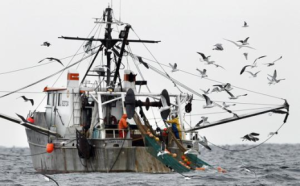 Federal fishing regulators and environmentalists seem to think the best approach to conservation is simply to nickel-and-dime the local fishing fleet out of existence. It’s a contemptible way to handle an industry that helped build the economy in this nation’s coastal states. Federal law now requires commercial fishing vessels that work beyond 3 nautical miles offshore to undergo updated safety and survival training (previously the requirement was only for vessels beyond 13 miles offshore). And of course safety’s a good thing; fishermen risk their lives with every trip. Read the op-ed here 08:32
Federal fishing regulators and environmentalists seem to think the best approach to conservation is simply to nickel-and-dime the local fishing fleet out of existence. It’s a contemptible way to handle an industry that helped build the economy in this nation’s coastal states. Federal law now requires commercial fishing vessels that work beyond 3 nautical miles offshore to undergo updated safety and survival training (previously the requirement was only for vessels beyond 13 miles offshore). And of course safety’s a good thing; fishermen risk their lives with every trip. Read the op-ed here 08:32






